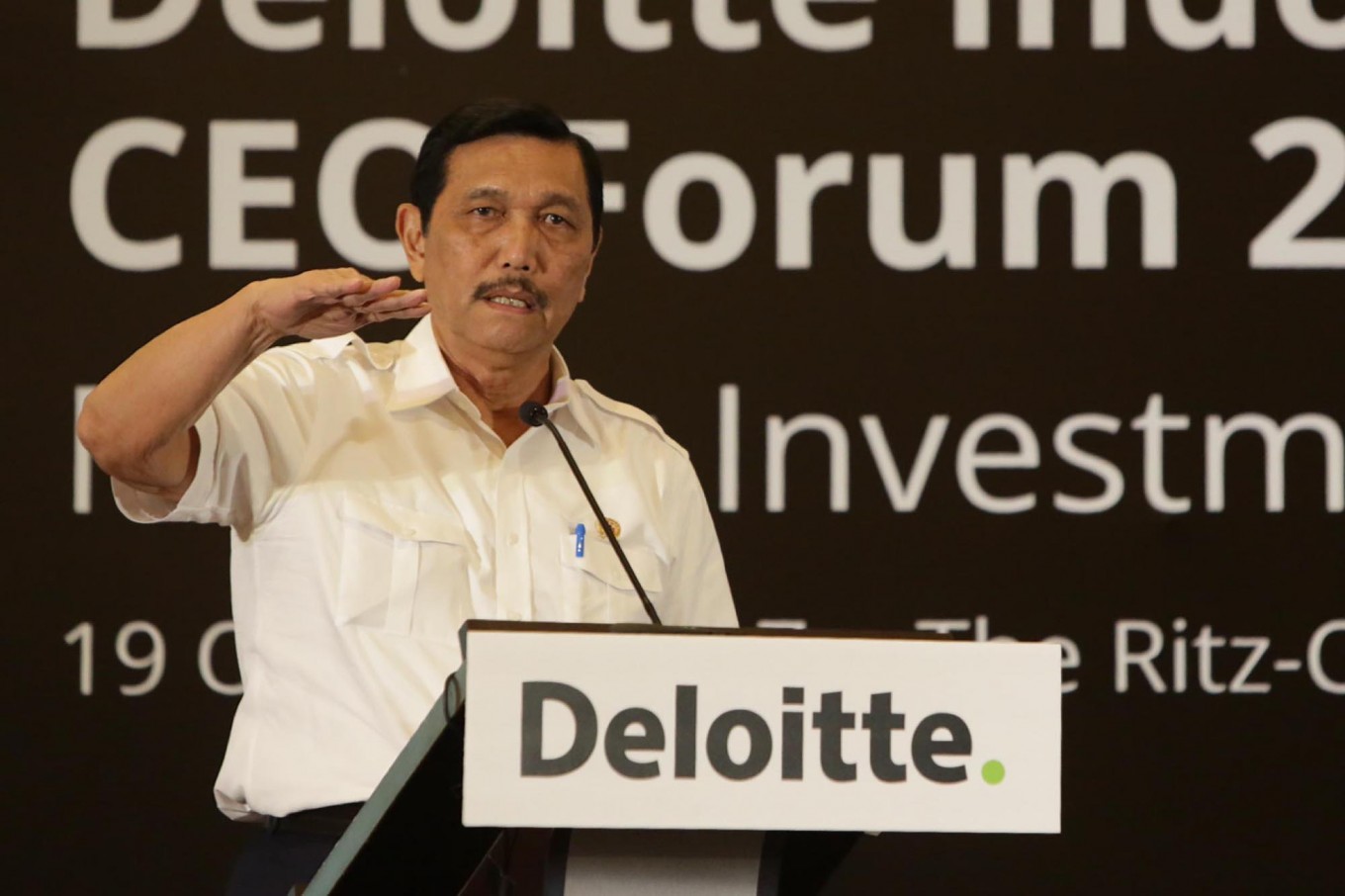Popular Reads
Top Results
Can't find what you're looking for?
View all search resultsPopular Reads
Top Results
Can't find what you're looking for?
View all search results‘So the economy won't die completely’: Luhut explains policy to allow 'mudik' during pandemic
The government says it will enforce a physical distancing policy on public transportation, therefore fares will increase.
Change text size
Gift Premium Articles
to Anyone
A
senior Cabinet minister has justified the government’s decision to not officially ban people from traveling home for the Idul Fitri holiday, saying that it could be “the best” decision to keep the economy afloat.
The decision was reached on Thursday following a Cabinet meeting led by President Joko “Jokowi” Widodo.
Coordinating Maritime Affairs and Investment Minister Luhut Pandjaitan said economic concerns were among the primary reasons for allowing people to leave Jakarta, arguing that a travel ban would likely be ineffective considering that an exodus from the capital city had begun earlier than expected.
“Our main consideration [for this policy] is so that the economy won’t die completely. After we calculate everything, this could be the best option of many options that are perhaps unsuitable [for us],” said the minister.
Luhut, who is also acting transportation minister after Transportation Minister Budi Karya Sumadi was hospitalized for the coronavirus, however, stressed that the government would make it harder for people to go back to their hometowns, a local tradition known as mudik.
He said the government would strictly enforce physical distancing measures, meaning that the capacity on public transportation would be limited and prices would go up.
The minister said he was hoping people would be more disciplined in practicing physical distancing to address the outbreak. He believed the outbreak would soon subside in Indonesia because of increasing temperatures in April but that would not happen if people failed to practice physical distancing.
President Jokowi said during Thursday’s meeting that homebound travelers, who could potentially carry the COVID-19 virus, must self-isolate as soon as they arrived in their hometowns as a preventative measure and ordered communities to increase the monitoring of recently-returned travelers, who will be considered people under observation (ODP).
“I would like to encourage participation at the community level, be it through neighborhood units [RT] or community units [RW] so that travelers who come back from Greater Jakarta can be given ODP status,” said Jokowi from Bogor Palace, West Java, adding that village funds could be used as social safety nets for the villagers.
In a separate meeting on Thursday, Jokowi also instructed Home Minister Tito Karnavian to reprimand regional administrations that, because of their own mobility-restriction measures, had set up road blocks that prevent the smooth distribution of goods during Ramadan and Idul Fitri.
“I received a report yesterday that there are two regions that had hampered the distribution of rice because they blocked their roads. Please notify the administrations about this,” said Jokowi.
Jokowi has resisted calls to impose territorial quarantines to contain the coronavirus outbreak and is instead opting for large-scale social restrictions as the main government strategy after declaring a public health emergency status over COVID-19 on Tuesday.










